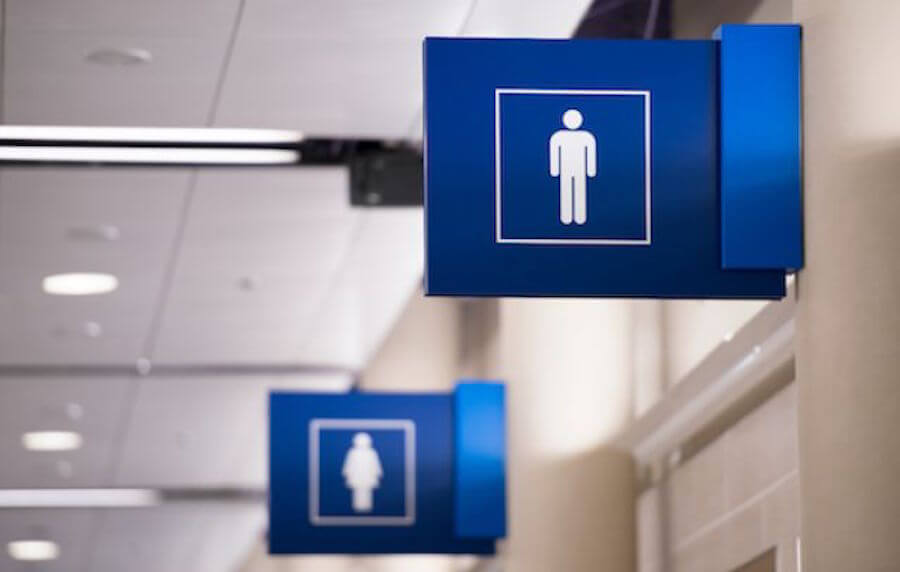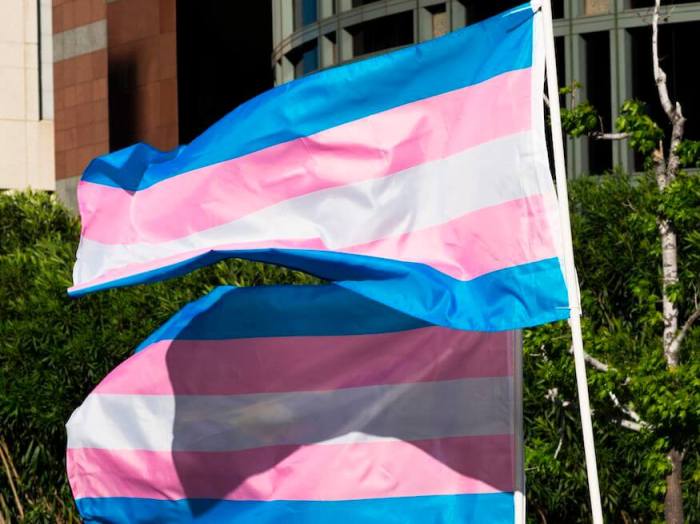America’s culture wars have moved from the voting booth to the wedding chapel and, now, to the restroom, where the debate over transgender individuals’ rights has states, cities, schools and businesses adopting non-discrimination policies. That’s been the approach taken by the Philadelphia School District, Massachusetts state lawmakers and New York City, all of which have come out strongly in favor of transgender peopleusing bathrooms of their gender identity. But long before who was allowed to use restrooms became a presidential campaign issue, city halls and school districts in Boston, New York and Philadelphia had been quietly dealing with it. Their policies, according to spokespersons, complied with federal civil rights guidelines from the Department of Education’s Office of Civil Rights (OCR) and respected the privacy of students, employees and citizens. All without causing a backlash.
“This has become a front-page story, maybe because of the presidential races, but districts have been facing this for a long time without it becoming a big deal,” said Mark Fitzgerald, a partner at Fox Rothschild, a firm that has worked with school districts across Pennsylvania and advised them on policies for trans students. RELATED:PHOTOS: 12 transgender celebrities and public figures you should know ”They seem to be using common sense and working with the kids and making sure they’re comfortable,” he said. “You don’t necessarily need a policy, but you need to be mindful of what the legal obligations are from such governing entities as the OCR.” The Philadelphia School District allows its transgender students to use the bathroom of the gender they identify with under a general policy for multi-racial, -cultural, and -gender education, said spokesman Fernando Gallard. “We accommodate students’ requests to use bathroom facilities or any other types of facilities, according to the gender that they identify with,” he said. “We are in the midst of working on a policy that specifically talks about the rights of transgender and gender nonconforming students.” Philadelphia’s non-discrimination law says that citywide, transgender people can use the bathroom of the gender they identify with, everywhere from the airport to City Hall.
“Transgender people have been using the bathroom that is appropriate for their gender identity, not what is on their birth certificate, for years in Philadelphia,” said Nellie Fitzpatrick, Philly’s director of LGBT Affairs. “The result is all people are safer and healthier.” In New York City, the Department of Education (DOE) has created guidelines intended to help schools across the city guarantee a safe learning environment while also ensuring the social integration of transgender students. RELATED:Conservative group boycotts Target over transgender policy The guidelines address areas such as students’ official records, use of proper names and pronouns, sports and physical education, restroom and locker room accessibility, and also offers resources for transgender or “transitioning” students. “We are dedicated to creating a safe and supportive environment for transgender and gender non-conforming individuals,” said Toya Holness, DOE spokeswoman. “Bathroom use is an important issue for our students and we are working to ensure the facilities in our buildings are inclusive of all genders over the coming months.” According to the guidelines, a transgender student should not be required to use a locker room or restroom that conflicts with their gender identity.
Transgender students who seek more private matters when it comes to using the bathroom or a locker room will be provided with alternative arrangements such as private areas or use of single stall restroom, according to the DOE. RELATED:Inside Jara’s escape: advocacy as an Ivy League transgender sex worker In March, New York City Mayor Bill de Blasio signed an executive order requiring city agencies to guarantee that employees and the public will be given access to city single-sex facilities consistent with their gender identity without being required to verify their gender. The order applies to city-owned buildings, public parks, pools, certain museums, and recreation centers. City agencies are also required to post the new single-sex facility policy in visible locations. At the end of 2015, the city’s Commission on Human Rights issued a new legal enforcement guidance that said any employer, housing provider or public accommodation that rejects access to bathrooms or single-sex facilities based on gender identity can be prosecuted for violating the NYC Human Rights Law. Massachusetts lawmakers appear poised to pass a bill that would add discrimination protections for transgender people in public places such as parks and restaurants. Some of their colleagues have raised objections, however, citing concerns about privacy in bathrooms and locker rooms. “I’m suggesting that the privacy rights of our children matter,” Rep. James Lyons, a Republican, said at a hearing on the bill in October. “We ought to at least think about that.” RELATED:Meet Jennifer Lydon, the Metro staffer who came out as transgender after 14 years Andrew Beckwith, president of the conservative Massachusetts Family Institute, has called the idea of a transgender woman using a women’s bathroom “entirely inappropriate.”
Gov. Charlie Baker hasn’t taken a position on the bill, nor has he ruled out a veto. In April, though, he said in a statement that he “believes people should use the restroom facility they feel comfortable using.” The measure has support from a majority of legislators by a wide margin, as well as many top politicians, among them Boston Mayor Marty Walsh.
Walsh in 2015 opened two gender-neutral bathrooms in City Hall.
Boston this week became the fourth city in the nation to fly the white-pink-and-blue transgender pride flag. It has been flying on a pole in City Hall Plaza since Monday, and Walsh has pledged to keep it there until the bill passes. A city ordinance in Boston already provides public accommodations protections to trans people within city limits.
Massachusetts schools have been required by law since 2011 to allow students to use the bathrooms and locker rooms that correspond with their gender identity. Among other measures, schools have been advised to provide transgender students access to private, gender-neutral bathrooms in places like nurses offices. The new bill also has the support of the Massachusetts Association of Superintendents.
The reaction elsewhere has been swift and visceral. North Carolina passed a so-called bathroom bill restricting transgender people to using the restroom that corresponds with their birth gender, not their identity. An online video of a school board meeting in South Carolina shows a large crowd erupting into a rendition of “Jesus Loves Me” to drown out the lone speaker in support of transgender rights. A petition started by the Mississippi-based American Family Association (AFA) to boycott Target after the retailer announced its customers can use whatever bathroom meets their gender identity, has 1.3 million signatures. “Target’s policy is exactly how sexual predators get access to their victims,” the petition states. “This means a man can simply say he ‘feels like a woman today’ and enter the women’s restroom…even if young girls or women are already in there.” RELATED:Transgender woman speaks out on D train attack
Last week, Springfield Township became the first Pennsylvania school district to announce a formal policy on transgender students using school bathrooms, prompting objections from conservative groups opposed to expanding transgender rights. Pennsylvania state rep. Mark Cohen, who was defeated in April’s primary, previously introduced two transgender rights bills in the state legislature, one applying to health-care and one applying to students. Both are languishing and he does not expect them to move forward anytime soon. “The Pennsylvania Legislature is very conservative,” he said. “My feeling is, we are dealing with human needs, and we ought to give transgender people rights, then deal with whatever practical problems there are. … I believe that ultimately, trans people, like gay people, will have full equal rights. In the interim, more and more people are according them the respect that they deserve, without a mandate to do so.” Additional reporting by Angy Altamirano and Spencer Buell
Cities, schools say transgender restroom use a matter of identity

Getty Images















